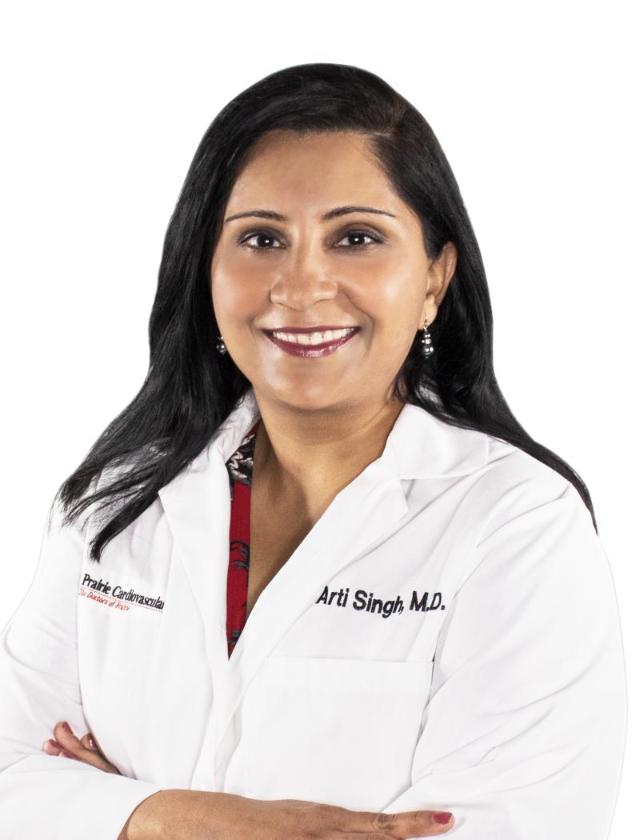 O’FALLON – Since February is American Heart Month, it’s the perfect time to refresh your memory on the warning signs of a heart attack. Prairie Cardiovascular and HSHS St. Elizabeth’s Hospital encourage everyone to take a moment to learn what you should do if you or a loved one experiences heart attack symptoms.
O’FALLON – Since February is American Heart Month, it’s the perfect time to refresh your memory on the warning signs of a heart attack. Prairie Cardiovascular and HSHS St. Elizabeth’s Hospital encourage everyone to take a moment to learn what you should do if you or a loved one experiences heart attack symptoms.
Heart attacks aren’t always the swift and intense events that are portrayed on TV. As a result, some people may delay calling 911 because they don’t realize that what they’re feeling is a heart attack.
“Most heart attacks involve discomfort (felt in the center of the chest) that lasts more than a few minutes or comes and goes,” says Arti Singh, MD, a cardiologist with Prairie Cardiovascular. Many people describe it as pressure, squeezing, fullness or pain. Other discomfort not generally perceived as ‘pain’ may:
- Feel like indigestion
- Not be in a specific spot
- Be felt in the chest, the inner arm (especially the left arm), the jaw or teeth, or other parts of the body
- Get worse with activity and subside with rest
- Come and go, and increase over time; each new pain recurs sooner, lasts longer, and feels worse
- Be accompanied by sweating, shortness of breath, or flu-like symptoms
Dial, Don’t Drive
If you are experiencing heart attack symptoms always call 911 for medical help. Never drive yourself.
“EMS professionals and other first responders can assess your situation quickly and begin treatment immediately,” says Dr. Singh. “Those are life-saving seconds that could be the difference between irreversible heart damage, a treatable condition, or even death.”
In central and southern Illinois, Prairie Heart Institute has a ‘Chest Pain Network,’ connecting hospitals and EMS agencies for the fastest and best care for chest pain patients. EMS professionals can instantly forward your vitals and EKG information to any hospital within the Chest Pain Network. It also ensures the hospital heart team is waiting when patients arrive, greatly decreasing the time between heart attack symptoms and treatment in the hospital.
“Many people wait when they are experiencing heart attack symptoms because no one wants to admit how they are feeling could be a heart attack,” said Bonnie Schnieder, MS RT, director of the cath lab at St. Elizabeth’s Hospital. “But don’t delay your care as minutes count and we can care for all patients who need us, no matter what they are experiencing.”
To learn more about the doctors of Prairie, call 888-4PRAIRIE or visit www.Prairieheart.org
About Prairie Heart Institute of Illinois
The Prairie Heart Institute of Illinois (PHII) is a community-based network of hospitals that offers cardiovascular programs staffed by the nationally recognized Prairie Cardiovascular, the largest group of cardiologists in the tri-state region. Because of the Prairie Education and Research Consortium (PERC), network hospitals of PHII also have access to drugs and treatments not widely available. The network hospitals of PHII offer the highest level of cardiovascular care possible in their communities. When more specialized care is needed, it is available in Springfield, O’Fallon or Carbondale.

